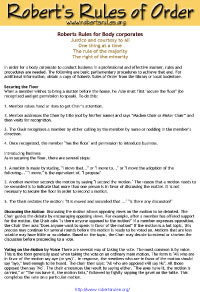Meetings: Appointment of Officers & Committee
Satellite images of your group
A satellite image of your group can be very useful at your meetings.
The image below was copied from Google Earth. It shows a group of units in Adelaide. At a meeting owners can use this image to address grounds and building related matters, such as problem trees, poorly kept yards, roof and driveway issues. A picture is worth a 1000 words.
Click on this image as access the Google Earth download site.
Community Titles Act
The appointment of Community Corporation officers is covered by Section 76 of the Act.
Section 76—Officers of community corporation..
76:Presiding officer, treasurer and secretary
(1) A community corporation must, by ordinary resolution, appoint a presiding officer,treasurer and secretary.
(2) Subject to this section, the offices of presiding officer, treasurer and secretary must be held by natural persons who are members of the corporation.
(3) In the case of a community scheme
(a) comprising ten community lots or less—two or all of those offices may be held by one person;
(b) comprising eleven or more community lots—two of those offices may be held by one person.(4) A person for the time being appointed by a body corporate that is a member of a corporation to attend and vote at meetings of the corporation is a member of the corporation for the purposes of subsection (2).
(5) If the community parcel is subject to a leaseback arrangement the corporation may appoint a person, or persons (who need not be a member, or members, of the corporation), nominated by the lessee to hold one, two or all of the offices of presiding officer, treasurer and secretary.
(6) The presiding officer, treasurer and secretary must be appointed for a term that expires at or before the next annual general meeting of the corporation.
(7) The office of a person appointed under this section becomes vacant if he or she:
(a) dies; or
(b) completes his or her term of office and is not reappointed; or
(c) in the case of a person who was a member of the corporation when he or she was appointed to the office—ceases to be a member of the corporation; or
(d) in the case of a person appointed by a body corporate that is a member of the corporation to attend and vote at meetings—ceases to hold that appointment, or
(e) resigns by written notice to the secretary or, in the case of the secretary, to the presiding officer; or
(f) becomes bankrupt or applies to take the benefit of a law for the relief of insolvent debtors; or
(g) is convicted of an indictable offence or sentenced to imprisonment for an offence; or
(h) is removed from office by special resolution of the corporation.(8) A resolution referred to in subsection (7)(h) can only be passed on one or more of the following grounds—
(a) misconduct;
(b) neglect of duty;
(c) incapacity or failure to carry out satisfactorily the duties of the office.(9) A community corporation may appoint or engage a person to assist the presiding officer, treasurer or secretary.
Community Titles Act
The appointment of Community Corporation management committee is covered by Sections 90 & 91 of the Act.
90—Establishment of management committee
(1) A community corporation may (but is not obliged to) establish a management committee.
(2) A committee is established by ordinary resolution of the corporation.
(3) The members of a committee must be natural persons and must include the presiding officer, the treasurer and the secretary of the corporation.
(4) Subject to subsection (6), where each of the community lots is used, or is intended to be used, solely or predominantly for residential purposes, all the members of the
committee must be members of the corporation and for that purpose a person for the time being appointed by a body corporate that is a member of the corporation to attend
and vote at meetings of the corporation will be taken to be a member of the corporation.(5) Where one or more of the community lots are not used, or intended to be used, solely or predominantly for residential purposes, the committee may be comprised of or
include persons who are not members of the corporation.(6) Where the community parcel is subject to a leaseback arrangement, the management committee may consist of one or more persons nominated by the lessee and appointed by ordinary resolution of the corporation.
91—Term of office
(1) A member of the committee must be appointed for a term that expires at or before the next annual general meeting of the corporation.
(2) A member’s office becomes vacant if the member:
(a) dies; or
(b) completes his or her term of office and is not reappointed; or
(c) in the case of a person who was a member of the corporation when he or she was appointed to the office—ceases to be a member of the corporation; or
(d) in the case of a member who is the presiding officer, treasurer or secretary of the corporation—ceases to hold that office and does not hold either of the other of those offices; or
(e) in the case of any member other than the presiding officer, treasurer or secretary of the corporation—resigns by written notice to the secretary of the corporation; or
(f) becomes bankrupt or applies to take the benefit of a law for the relief of insolvent debtors; or
(g) is convicted of an indictable offence or sentenced to imprisonment for an offence; or
(h) is removed from office by ordinary resolution of the corporation.(3) A resolution referred to in subsection (2)(h) can only be passed on one or more of the following grounds:
(a) misconduct;
(b) neglect of duty;
(c) incapacity or failure to carry out satisfactorily the duties of the office.
Community Titles Act
Section 92: Functions and powers of committees
(1) Subject to any limitations imposed by the corporation, it is the function of a management committee to carry out the functions and perform the duties of the corporation within the limits of the committee’s powers.
(2) Subject to this Act and to any limitations imposed by the corporation or by the bylaws of the community scheme, a management committee has full power to transact any business of the corporation.
(3) A committee cannot delegate its functions or powers but a community corporation may appoint or engage a person to assist the committee in the performance of the committee’s functions.
(4) A committee does not have power to do anything for which a special or unanimous resolution of the corporation is required.
93: Convening of committee meetings
(1) A meeting of a management committee may be convened by the presiding officer, treasurer or secretary of the corporation or by any two members of the committee.
(2) A meeting is convened by giving written notice of the day, time and place of the meeting to all members of the committee at least three days before the date of the meeting.
(3) The day, time and place of the meeting must be reasonably convenient to a majority of the members of the committee.
(4) The notice convening a meeting must set out the agenda for the meeting.
94: Procedure at committee meetings
(1) The presiding officer will preside at committee meetings but in his or her absence the members present may appoint a member to preside at that meeting.
(2) The quorum for the transaction of business at a committee meeting is determined by dividing the number of members of the committee by two, disregarding any fraction
and adding one.(3) A decision supported by a majority of the members present at a management committee meeting is a decision of the committee.
(4) A member of a committee may appoint another person to act as his or her proxy at a committee meeting that the member is unable to attend.
(5) The person appointed must, if each of the community lots is used, or is intended to be used, solely or predominantly for residential purposes, be another member of the
committee or a member of the community corporation.(6) A decision is made by a committee without meeting if—
(a) written notice setting out the proposed decision is served on every member of the committee; and
(b) within seven days after the notice is served on all members of the committee a majority of the members give written notice to the secretary setting out the proposed decision and expressing their agreement with it.(7) A management committee must cause accurate minutes to be kept of proceedings at its meetings.
(8) Subject to this Act, the by-laws and to any direction of the community corporation, a committee may regulate procedures at its meetings as it thinks fit.
95: Disclosure of interest
(1) A member of a committee who has a direct or indirect pecuniary interest in a matter under consideration by the committee—
(a) must disclose the nature of the interest to the committee; and
(b) must not take part in any deliberations or decisions of the committee in relation to that matter. Maximum penalty: $15 000.(2) It is a defence to a charge of an offence against subsection (1) to prove that the defendant was not, at the time of the alleged offence, aware of his or her interest in the matter.
(3) A disclosure under this section must be recorded in the minutes of the committee.
(4) In this section; pecuniary interest of a member of a committee does not include an interest arising solely from the fact that the member is also a member of the community corporation.
96: Members’ duties of honesty
(1) A member of a committee must at all times act honestly in the performance of his or her duties.
Maximum penalty:(a) if an intention to deceive or defraud is proved—$15 000 or four years imprisonment;
(b) in any other case—$4 000.(2) A member of a committee must not make improper use of his or her official position to gain a personal advantage for himself, herself or another. Maximum penalty: $15 000 or four years imprisonment.
97: Casual vacancies
A management committee may co-opt a suitable person to fill a casual vacancy in the membership of the committee.
98: Validity of acts of a committee. If a management committee acts honestly, a vacancy in its membership or the subsequent discovery of a defect affecting the appointment of a member, or the right of a person to act as a member, does not invalidate the act of the committee.
99: Immunity from liability
(1) A committee member is not liable for an act or omission while acting, or purportedly acting, as a committee member unless the act or omission was dishonest or negligent.
(2) A liability that would, but for subsection (1), attach to a committee member attaches instead to the corporation or, where the community parcel is subject to a leaseback arrangement, to the lessee.









